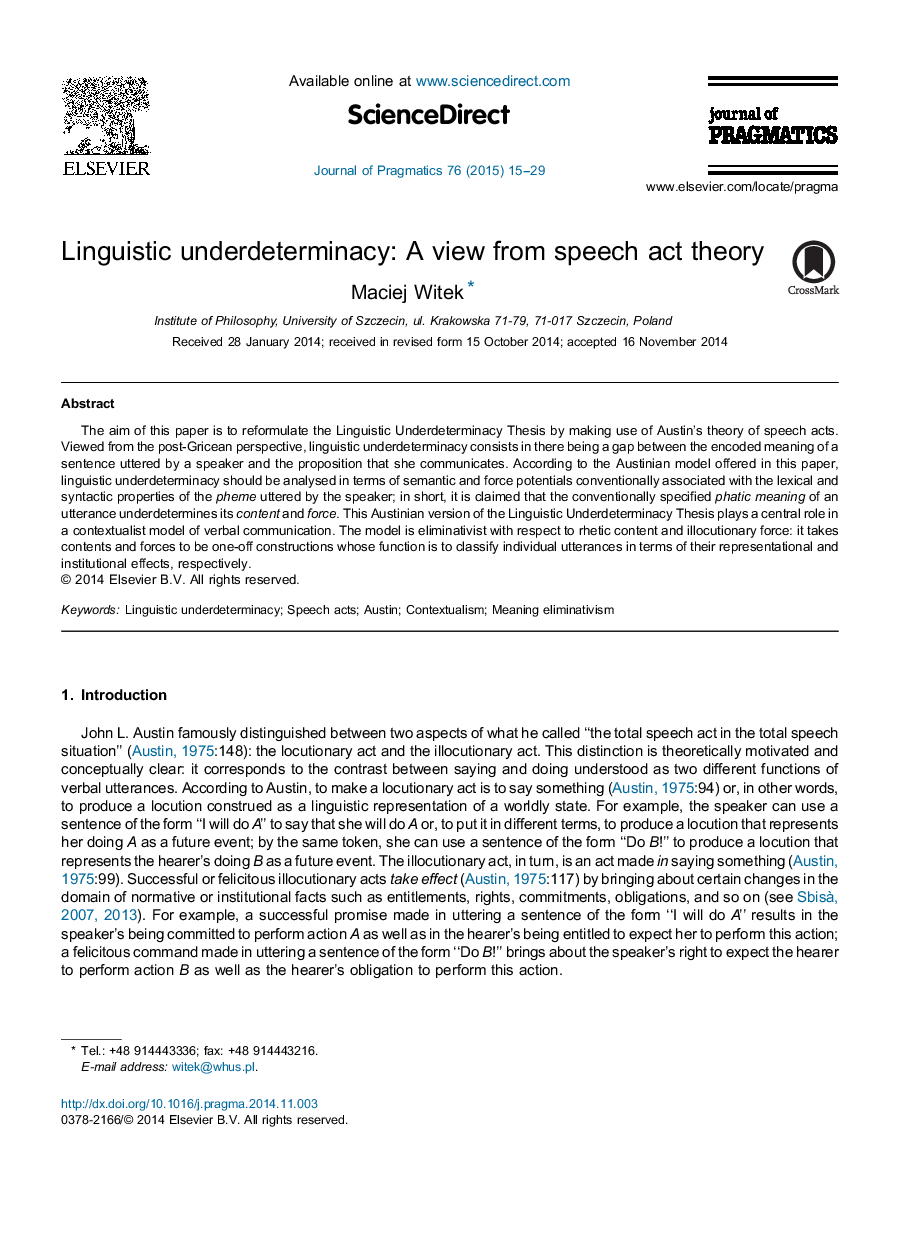| Article ID | Journal | Published Year | Pages | File Type |
|---|---|---|---|---|
| 932644 | Journal of Pragmatics | 2015 | 15 Pages |
•I reconsider Austin's contribution to the study of linguistic practice.•I develop an Austinian account of the phenomenon of linguistic underdeterminacy.•I represent language conventions as phatic, rhetic and illocutionary lineages.•I develop an eliminativist version of contextualism about meaning and force.•I distinguish between rhetic content eliminativism and force eliminativism.
The aim of this paper is to reformulate the Linguistic Underdeterminacy Thesis by making use of Austin's theory of speech acts. Viewed from the post-Gricean perspective, linguistic underdeterminacy consists in there being a gap between the encoded meaning of a sentence uttered by a speaker and the proposition that she communicates. According to the Austinian model offered in this paper, linguistic underdeterminacy should be analysed in terms of semantic and force potentials conventionally associated with the lexical and syntactic properties of the pheme uttered by the speaker; in short, it is claimed that the conventionally specified phatic meaning of an utterance underdetermines its content and force. This Austinian version of the Linguistic Underdeterminacy Thesis plays a central role in a contextualist model of verbal communication. The model is eliminativist with respect to rhetic content and illocutionary force: it takes contents and forces to be one-off constructions whose function is to classify individual utterances in terms of their representational and institutional effects, respectively.
